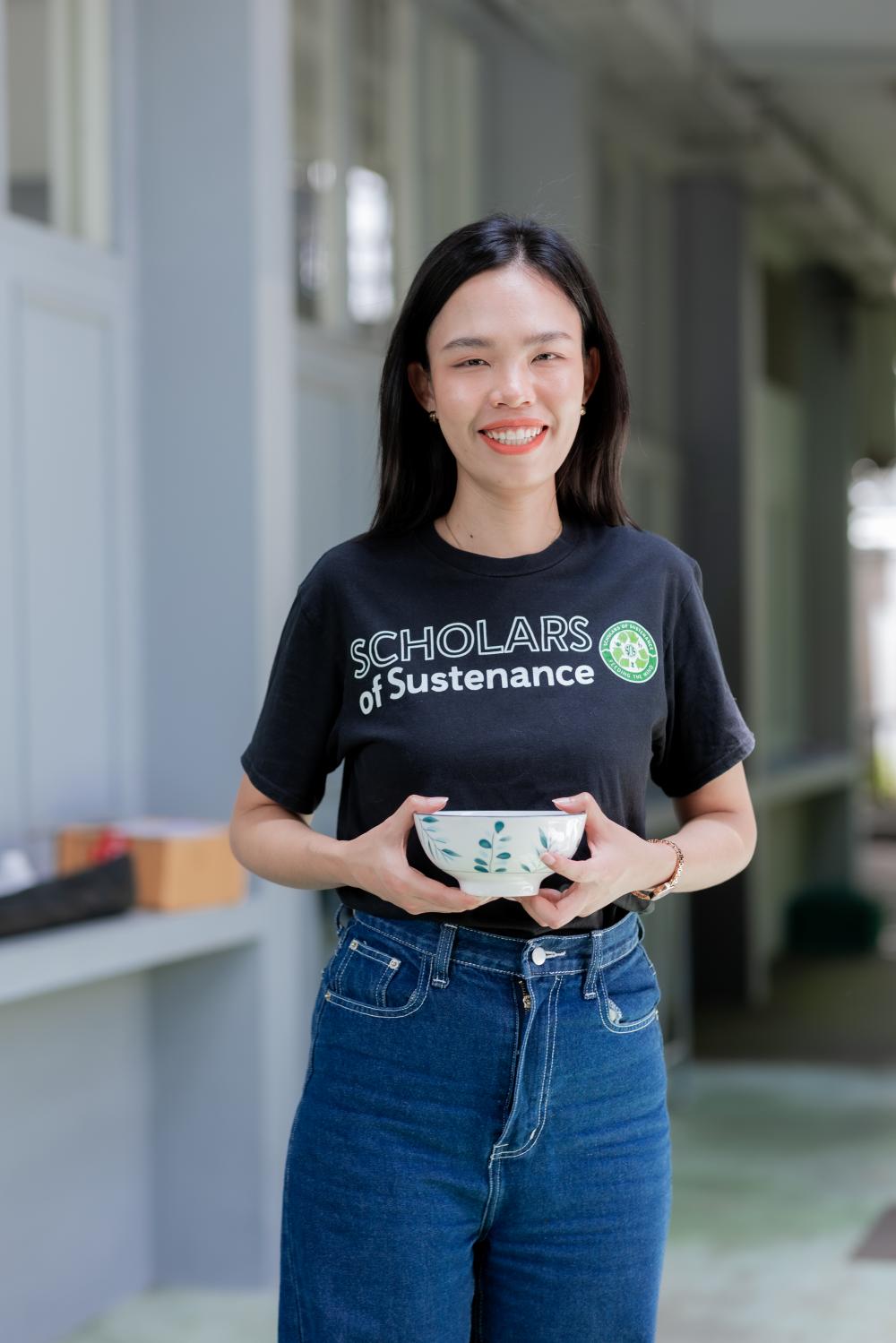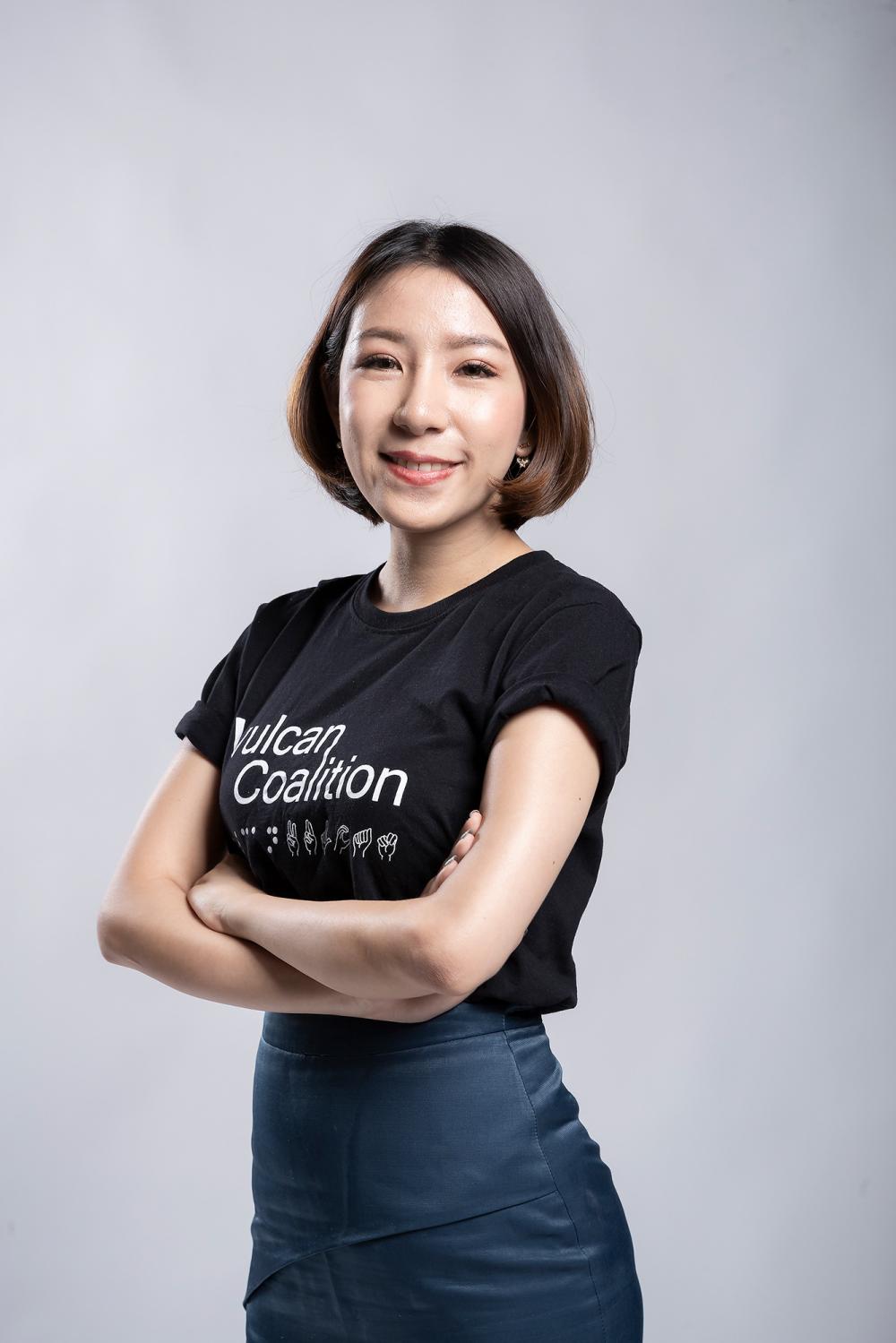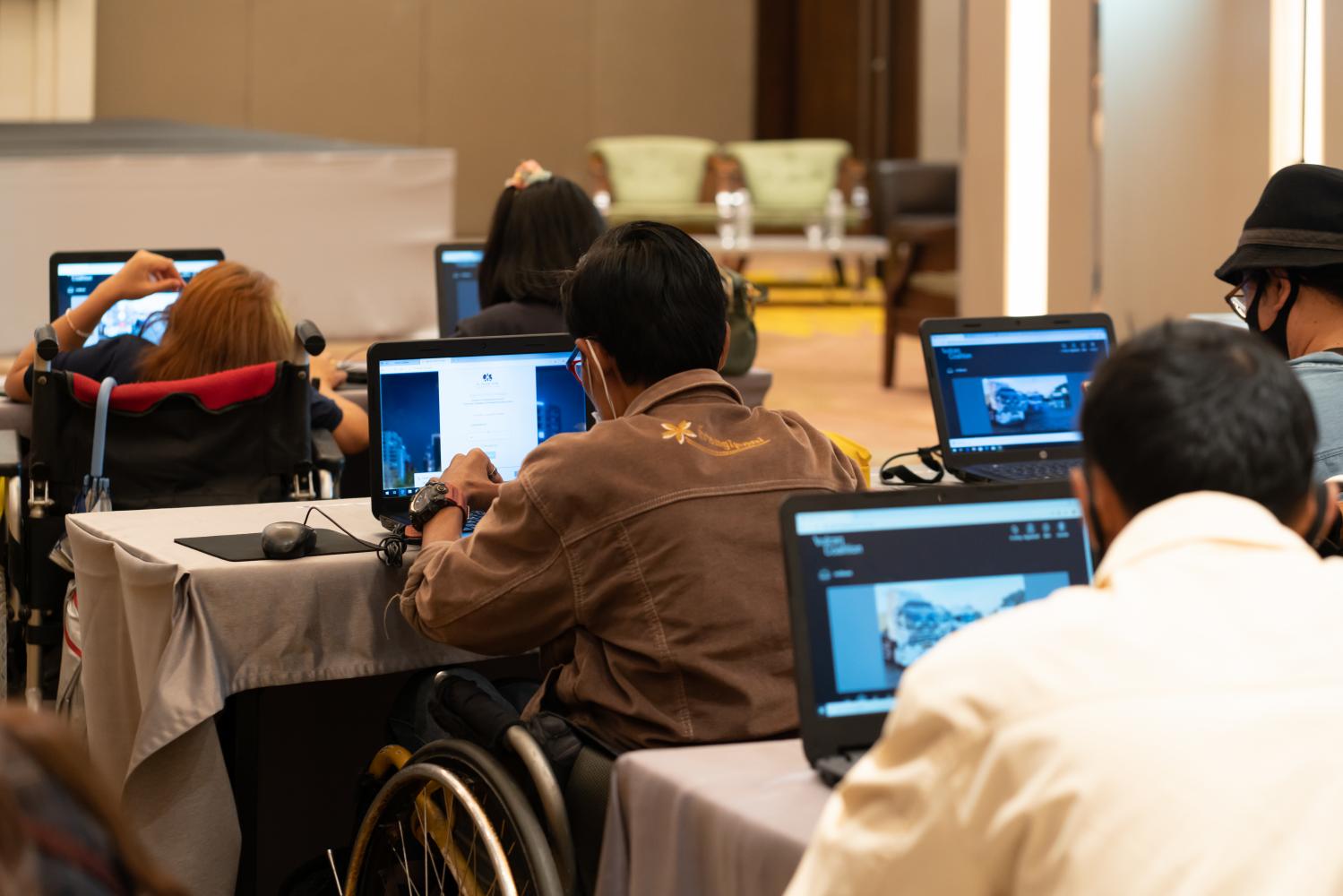To inspire people to create sustainable innovations to propel the country, the National Innovation Agency annually selects "100 Faces Of Thailand's Innovation Inspirers". Now in its third year, the project presents 100 Thais from various fields who have created innovations that play a role in developing society in a sustainable way. This year's theme is sustainable innovation and the project has been launched as a book and a virtual showcase at nia100faces.com.
Among the people selected for "100 Faces Of Thailand's Innovation Inspirers 3", Life spoke to two women -- Tanaporn Oi-isaranukul, senior operations manager at Scholars of Sustenance (SOS); and Methawee Thatsanasateankit, CEO and co-founder of Vulcan Coalition. SOS Thailand, under Tanaporn's leadership, turns surplus food into sustainable consumption for those in need. Meanwhile, the Vulcan Coalition led by Methawee has created employment opportunities for people with disabilities.
Tanaporn Oi-isaranukul
Senior operations manager at Scholars of Sustenance (SOS)

Tanaporn Oi-isaranukul, senior operations manager at Scholars of Sustenance. Photos courtesy of Scholars of Sustenance (SOS)
SOS, the first food rescue foundation in Thailand, was established in 2016 by Danish CEO and founder Bo H. Holmgreen. He travelled to Thailand and witnessed significant amounts of food waste, especially at hotel buffets. SOS saves surplus food and distributes it to people in need.
Tanaporn joined SOS in 2016, after graduating with a major in food technology and processing from King Mongkut's Institute of Technology Ladkrabang. Her first position was as a project assistant and played a crucial role in implementing the food rescue system and creating guidelines for the safe distribution and utilisation of food.
"I am glad and proud to be a part of SOS which is a pioneer company in food rescue. I hope that the 100 Faces project will help raise awareness of food shortage. One-third of all the food produced goes unconsumed. SOS cannot tackle this issue alone; we need to collaborate with government agencies and private sectors," said Tanaporn.
Back in 2016, SOS began by approaching hotels to donate surplus food from their buffets to communities in need. The first two years were challenging for SOS because the concept of food rescue was new in Thailand. SOS had to educate people about food surplus and food donation. Currently, SOS receives donations from a variety of sources, including hotels, retailers, supermarkets, convenience stores, manufacturers and warehouses.
Many people may think that throwing away surplus food is a personal matter. Tanaporn explained that surplus food which is not managed properly becomes food waste and ends up in a landfill. This food waste generates methane which contributes to the greenhouse effect. Food waste can also lead to other types of pollution including water and odour pollution.
SOS currently has offices in four locations: Bangkok, Phuket, Chiang Mai and Prachuap Khiri Khan. They operate 13 refrigerated trucks to distribute food to communities. From 2017 to May this year, SOS saved 6.1 million kilogrammes of food and distributed it to communities, providing 25.6 million meals. This reduces carbon emissions equivalent to about 13.2 million kilogrammes.

Food donations distributed by SOS. Scholars of Sustenance (SOS)
People who receive food from SOS live in vulnerable communities. They cannot afford food of good quality which causes them to become malnourished. SOS collaborates with the Ministry of Social Development and Human Security to identify these communities. SOS also works with volunteers who help distribute food to remote communities such as Baan Badae in Tak, Omkoi in Mae Hong Son, communities in the three southernmost provinces and other areas along the borders of Kanchanaburi.
SOS is very strict about food safety. Food donations are checked at three different points to ensure safety. People involved at these three checkpoints include donors, SOS staff who pick up food from donors, and volunteers who distribute the donations to communities.
"After working with SOS for seven years, I am impressed to see that the concept of food rescue is more widely accepted. I hope more people become aware of significant food waste and inequality in accessing foods that meet the required standard in society. I also hope that in the future, the government will implement a bill which will support food donations, thus, encouraging more donors. The private sector should care more about the environment than profit because, in this era, companies which do not care about the environment cannot sustain their business," said Tanaporn.
Methawee Thatsanasateankit
CEO and co-founder of Vulcan Coalition

Methawee Thatsanasateankit, CEO and co-founder of Vulcan Coalition. Photos courtesy of Vulcan Coalition
In Thailand, it is not easy for people with disabilities to find a job. However, Vulcan Coalition, an AI start-up founded in 2020, collaborated with partners to hire 500 people with disabilities this year. According to Section 33 of the Persons with Disabilities Quality of Life Promotion Act BE 2007, Thai law requires public and private organisations to hire one disabled person for every 100 employees.
"Section 34 stipulates that if private organisations do not hire disabled persons, they have to pay money to the government's Fund for Promoting and Development of the Quality of Life of People with Disabilities, around 120,000 baht per year for each disabled employee that the company, by law, is supposed to hire. Section 35 allows organisations to assist disabled people in other ways. Therefore, these organisations can become Vulcan Coalition partners and hire disabled people to work with us," explained Methawee.
Methawee was inspired to help disabled people after she met a visually impaired classmate while studying at law school. After befriending many visually impaired people, she realised the challenges they faced in finding jobs. When she met Niran Pravithana who later became a co-founder of Vulcan Coalition, he informed her that many businesses need "AI trainers".
Methawee believed that visually impaired people were capable of working as AI trainers. One of the job requirements for AI trainers is to listen to audio files and transcribe information based on what is heard. This transcription process would eventually contribute to the development of a text-to-speech model, facilitating the rapid conversion of text documents into speech.
"To test the abilities of visually impaired people, staff installed a programme that allowed them to listen to audio files and transcribe them into text. We were impressed by their ability to transcribe the audio files at a faster speed than non-disabled people, which is very likely due to their dependence on hearing. The transcriptions also were of excellent quality. After that, we developed a platform enabling them to play audio files at a speed of three times faster. Additionally, we discovered that hearing-impaired people are often more adept in identifying specific details compared to non-disabled people," said Methawee.
In addition to transcribing audio files into text, some disabled employees also work as online chat support agents responding to customers for online businesses, with AI assisting in generating responses. At Vulcan Coalition, there are two visually impaired software developers as well.
Thanks to advanced technology and specialised platforms developed by Vulcan Coalition, 500 disabled employees are able to work from home. This arrangement helps them avoid difficulties in commuting due to Thailand's inadequate infrastructure for disabled people.

Vulcan Coalition's employee orientation and training. vii bearhouse
"I cannot claim credit alone for being one of the '100 Faces Of Thailand's Innovation Inspirers' because there are efforts from everyone at Vulcan Coalition. I am glad to see many disabled employees feeling proud of themselves. They have become someone whom their families can rely on. I hope human resources departments will open their minds to hiring disabled people. It can begin with simple empathy towards them.
"Employers with empathy will be more inclined to help resolve issues that may arise in the company," concluded Methawee.

